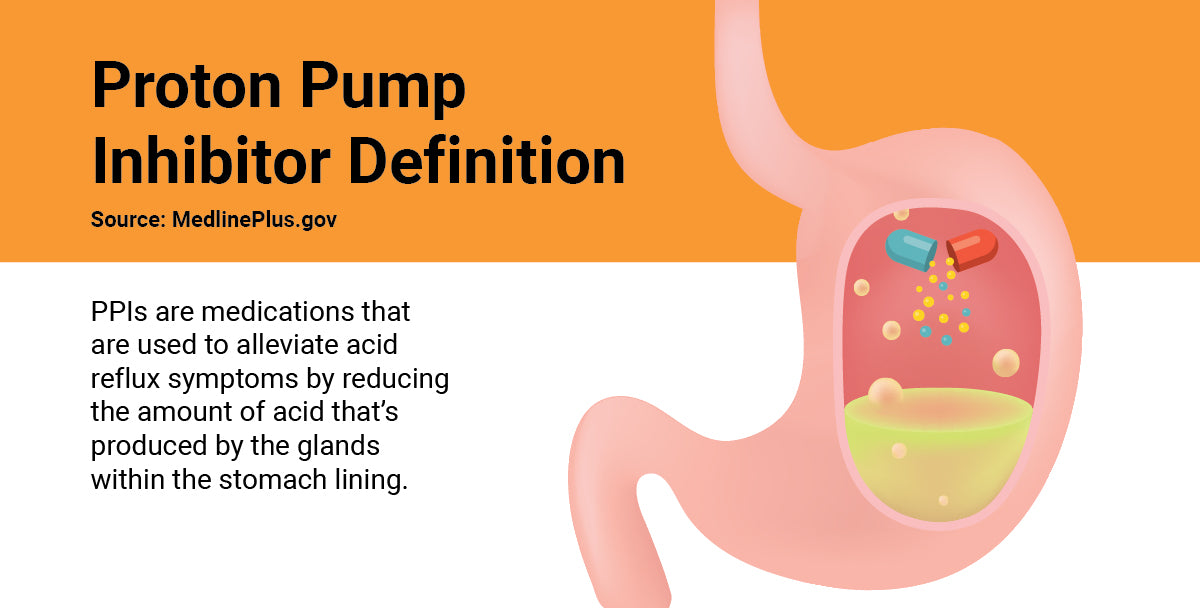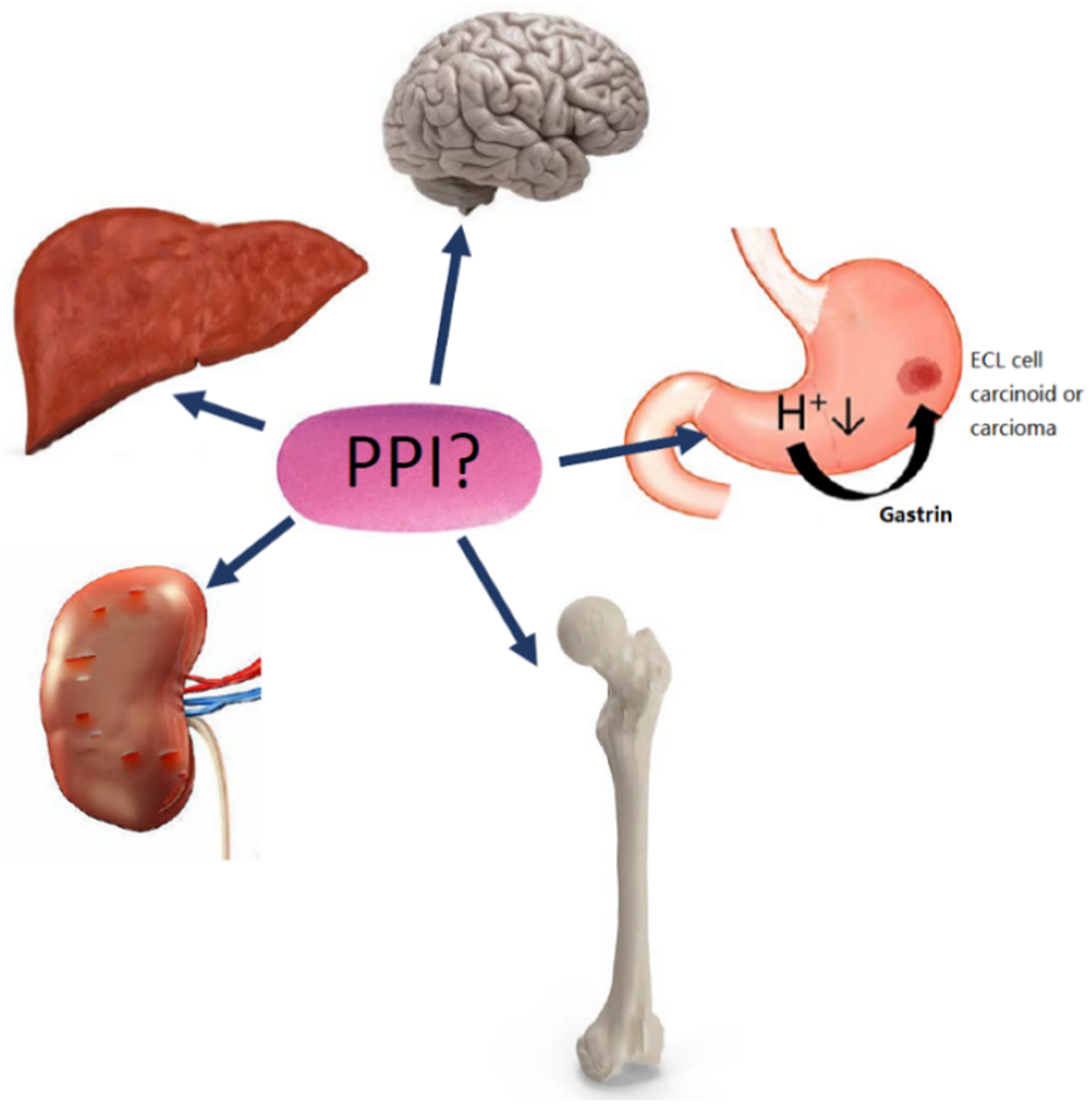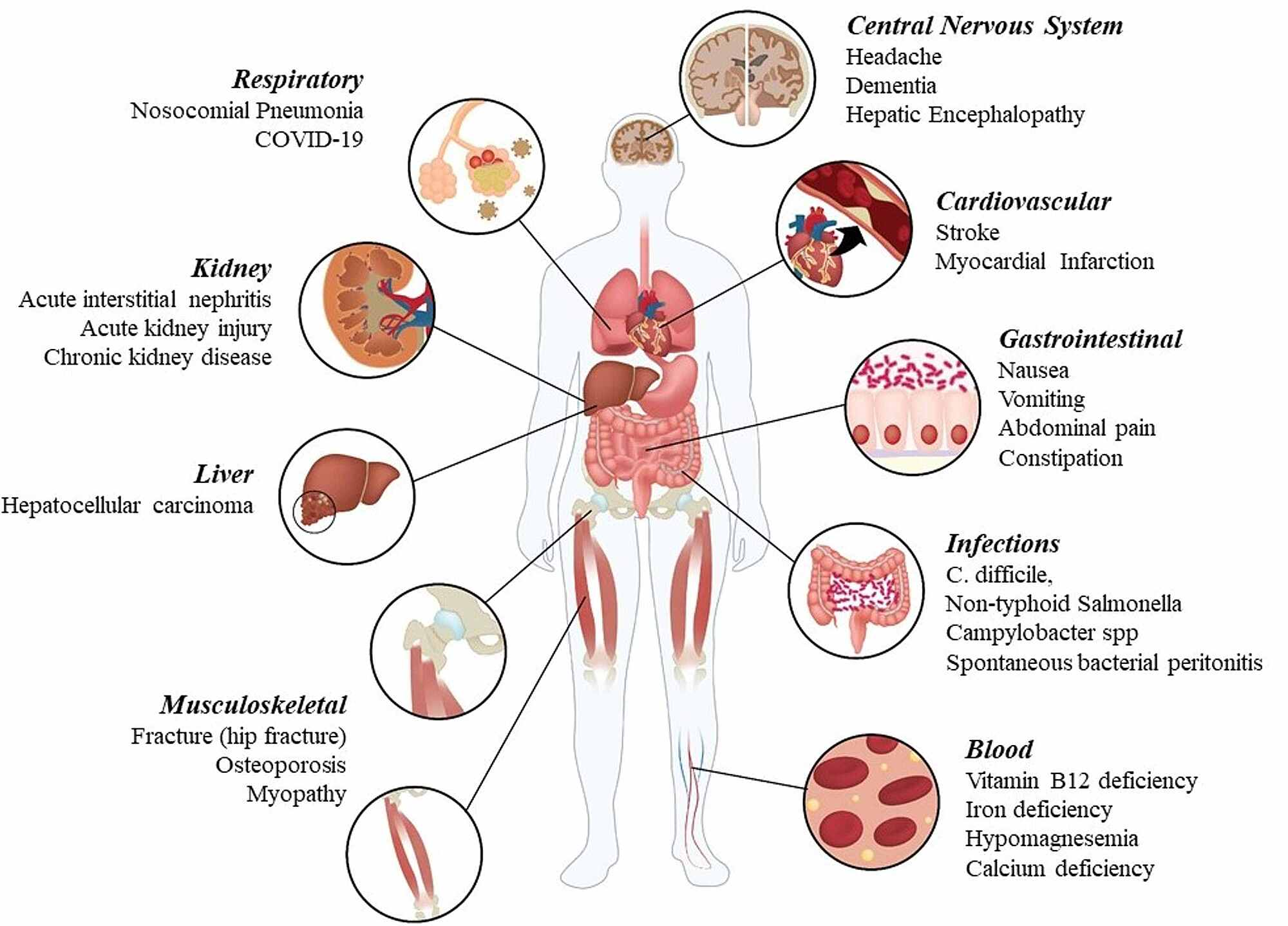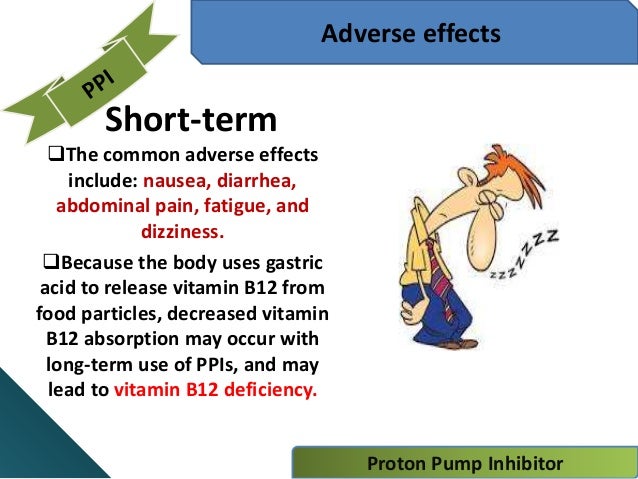Furthermore, some patients may have had ppi therapy discontinued abruptly or inappropriately due to safety concerns. This review summarizes adverse effects of potential proton pump inhibitors (ppis), including nutritional deficiencies (b12 and magnesium), rebound acid hypersecretion, acute interstitial nephritis, gastric carcinoid tumor, cardiovascular risk with clopidogrel and ppi coprescription, bone fractures, enteric.

Pin on Proton Pump Inhibitor(PPI) Uses And Sideeffects
Proton pump inhibitors (ppis), like all drugs, can cause side effects that range from minor to serious.
Proton pump inhibitors adverse effects. ) and should be considered before prescribing ppis. The most common adverse reactions include headache, diarrhea, nausea, abdominal pain, constipation, dizziness, and rashes. It is uncertain whether associations between ppi use and potential side effects are causal.
Diarrhoea is the most frequent adverse event in the long term ppi use and the most frequent cause of ppi withdrawal, with reported incidence ranging between 3.7% and 4.1% [76], [77], [78], [79]. Among the most commonly prescribed agents worldwide, ppis’ overall safety profile is unquestionable. Gastroenterologists are frequently asked about the appropriateness of ppi therapy for specific patients.
Examples of ppis include prilosec, prevacid, aciphex, protonix, nexium, and zegarid. A decrease in gastric acidity may induce changes in the normal microbial flora with bacterial overgrowth [75]. Proton pump inhibitors can interact with other drugs by increasing gastric ph, inhibiting hepatic cytochrome p450, or inducing specific isoforms of this enzyme system.
Adverse reactions that occurred most frequently in clinical trials were reportedly mild and included constipation, stomach pain, headache, diarrhea and vomiting. In general, ppis are believed to have few adverse effects, as they are generally well tolerated. Having an impaired microbiome for months or years can lead to serious.
This may be due to its longer availability and, hence, clinical. Suspected side effects are mainly related to increased susceptibility to infections, secondary hypergastrinaemia, impeded absorption of micronutrients or idiosyncratic reactions. Proton pump inhibitors (ppis) are a class of drugs used to treat gerd, peptic ulcers, and h.
Adverse effects of proton pump inhibitor drugs: Safety issues associated with proton pump inhibitors (ppis) have recently attracted widespread media and lay attention. In general, ppis are believed to have few adverse effects, as they are generally well tolerated.
Other adverse effects of proton pump inhibitors include pneumonia, rebound acid hypersecretion, gastric carcinoid tumor, cardiovascular risk and other medical problems. The most common adverse effects are headache, diarrhea, abdominal pain, and nausea.except for diarrhea,the adverse effects of. Common side effects are headache, diarrhea, constipation, vomiting, intestinal gas, fever, nausea, and rash.
This topic review will provide an overview of the mechanism of action, pharmacokinetics, administration, and adverse effects of ppis. The range and occurrence of adverse effects are similar for all of the ppis, though they have been reported more frequently with omeprazole. Other side effects are predominantly gastrointestinal, including symptoms such as nausea and abdominal pain, and usually decrease during the course of treatment.
Proton pump inhibitors (ppis) have revolutionized the management of gastroesophageal reflux disease and peptic ulcer disease over the past two decades. This review summarizes adverse effects of potential proton pump inhibitors (ppis), including nutritional deficiencies (b12 and magnesium), rebound acid hypersecretion, acute interstitial nephritis, gastric carcinoid tumor, cardiovascular risk with clopidogrel and ppi coprescription, bone fractures, enteric infections and pneumonia. This review summarizes adverse effects of potential proton pump inhibitors (ppis), including nutritional deficiencies (b12 and magnesium), rebound acid hypersecretion, acute interstitial nephritis, gastric carcinoid tumor, cardiovascular risk with clopidogrel and ppi coprescription, bone fractures, enteric infections and pneumonia.
Significant drug interactions occur especially with. A deficiently in these elements can lead to serious physical issues, including increased risk of having bone fractures of the hip, wrist and spine. Although generally considered well tolerated, epidemiologic studies mining large databases have reported a panoply of purported serious adverse effects associated with proton pump inhibitors, including chronic kidney disease, cognitive decline, myocardial infarction, stroke, bone fracture and even death.
However, important evidence from experimental and mechanistic studies that could support a causal relationship.
Contrast effects of proton pump inhibitors in normal
Acid Reflux & Stomach Ulcers Homeopathy Cape Town

Are PPIs Safe? (Proton Pump Inhibitors Side Effects

PPT Drugs used in the treatment of peptic ulcer

Acid Reflux & Stomach Ulcers Homeopathy Cape Town

IJMS Free FullText Adverse Effects of Proton Pump

Cureus Adverse Effects Associated with Proton Pump
Adverse Effects Associated With Proton Pump Inhibitors
